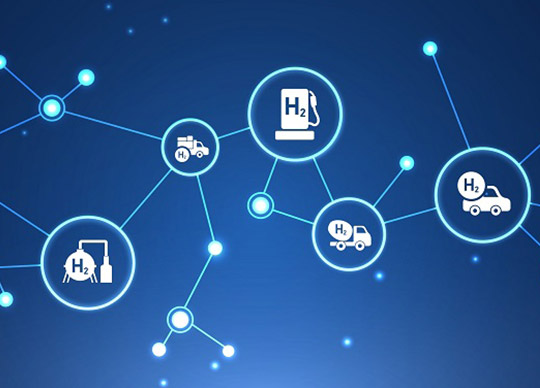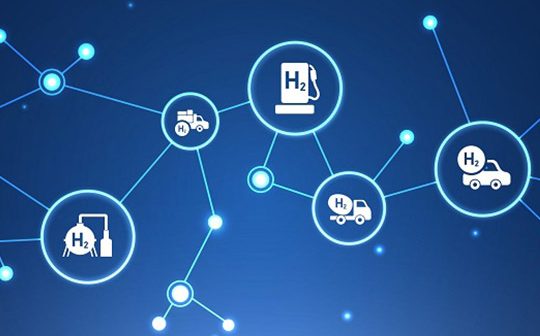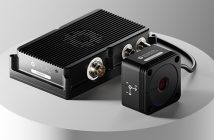
Equinix has announced a partnership with the Centre for Energy Research & Technology (CERT) under the National University of Singapore’s (NUS) College of Design and Engineering to explore technologies that enable the use of hydrogen as a green fuel source for mission-critical data centre infrastructure.
Together, Equinix and CERT will launch the world’s first research project to compare the efficiency of proton-exchange membrane (PEM) fuel cells and fuel-flexible linear generator technologies. PEM fuel cells are a leading contender for hydrogen energy, while fuel-flexible linear generators enable operators to easily switch between various clean fuel options including hydrogen, biogas and various renewable liquid fuels. Adoption of these technologies may allow data centres to reduce carbon emissions while meeting the rising demand for data, colocation and interconnection services.
The research collaboration between Equinix and CERT will involve a holistic assessment of the suitability of these technologies for tropical data centres, considering local climatic conditions, site constraints, power demand, supply chain, fuel storage capabilities as well as local regulatory policies.
This research initiative comes under a Memorandum of Understanding (MOU) signed earlier this year between the two partners. Under the MOU, CERT will conduct a comprehensive analysis of technologies identified in collaboration with Equinix, to determine the operational viability of the technologies at scale. Based on the results of the research, Equinix expects to develop proof-of-concept projects within its global network of data centres for real-world testing and to support incorporation into future data centre designs. By driving innovation in Singapore, the Equinix and CERT partnership aims to accelerate disruptive technologies that can reduce the carbon footprint of global data centres, particularly in tropical locations.
This partnership forms part of Equinix’s Future First strategy that underscores the company’s commitment to greening the digital economy. Green hydrogen has been identified as a viable source of sustainable energy for data centres. However, hydrogen generation on an industrial scale remains several years away from being commercially viable, making it imperative to assess and adopt alternatives even as global research and development continues.
“Data centres serve as the conduit powering the digital economy, and greening their operations can drive the rise of sustainable business throughout the broader economic landscape. Working with like-minded partners like the Centre for Energy Research & Technology at NUS empowers us with the combined experience and expertise to advance the growth of digital economies in line with environmental obligations, benefiting the data centre industry, global economies, and the planet.” Yee May Leong, Managing Director, South Asia, Equinix said.
“Sustainability is a key pillar of the global economy. To complement the efforts made by the public sector, timely progress also requires collaboration with stakeholders in the private sector and academia. We are keen to work with industry partners like Equinix, which is known for its sustainability efforts and provides us access to a global network of data centres that can serve as a testbed for a more accurate assessment of operational viability. Through this partnership, we look forward to playing a driving role for green data centre innovations that can be applied in Singapore and globally.” said Associate Professor Lee Poh Seng, Director, Centre for Energy Research and Technology, NUS College of Design and Engineering.
Highlights / Key Facts:
- Under this partnership, Equinix and NUS CERT will be conducting a comprehensive analysis to compare two clean on-site power generation technologies for data centres of the future. These technologies include:
- PEM fuel cells are becoming increasingly popular due to their ability to generate power with hydrogen and oxygen. Some designs can also run the process in reverse to produce pure hydrogen for future use with just water and electricity.
- Fuel-flexible linear generators offer the ability to switch between fuels like hydrogen, biogas and various renewable liquid fuels, enabling the installation of infrastructure that can be easily adapted to evolving market developments, empowering organisations with enhanced agility.
- Equinix was the first in the data centre industry to commit to becoming climate neutral, aligned to approved science-based targets, for emissions reduction across global operations and supply chain by 2030. In addition, Equinix continues to evaluate for on-site solar opportunities, onsite generation from fuel cells, and any other distributed low-carbon technology that fits with its overall strategy.
- Equinix’s renewable energy coverage has been over 90% since 2018. In 2021, the company achieved 95% renewable energy coverage. Year-over-year, Equinix has increased our procurement of renewables by 16% on a GWh-basis.
- Earlier this year, Equinix announced the opening of its first Co-Innovation Facility (CIF), located in its DC15 International Business Exchange™ (IBX®) data centre at the Equinix Ashburn Campus in the Washington, D.C. area. The CIF is a component of its Data Centre of the Future Initiative and is a new capability that enables innovative partners to work with Equinix on trialling and developing methodologies that may be used to help define the future of digital infrastructure and services.






